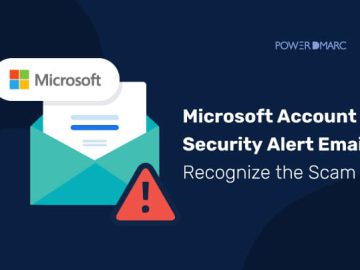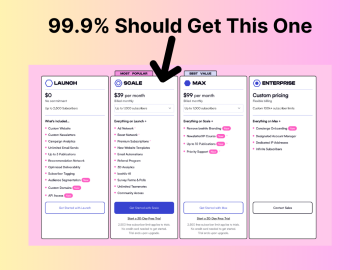Written By: Geoffrey Blanc, General Manager at Cyberimpact
Selecting the right email marketing platform is critical for engaging with your audience and driving business growth. With a ton of options available, ranging from feature-rich paid platforms to versatile free tools, making the right choice can be daunting. This guide will help you navigate through some of the top email marketing platforms, both paid and free, to find the best fit for your business.
Key Considerations for Choosing an Email Marketing Platform
Before diving into specific platforms, it’s important to identify the key factors that should influence your decision:
-
Budget: Determine your budget for email marketing. Free tools can be a great start, but paid platforms often offer advanced features that can be worth the investment.
-
Business Size and Needs: Consider the size of your business and your specific marketing needs. Are you a small business looking for basic features or a larger enterprise needing comprehensive solutions?
-
Ease of Use: The platform should be user-friendly, especially if you don’t have a dedicated marketing team.
-
Features and Integrations: Look for features such as automation, analytics, and integrations with other tools you use.
-
Compliance and Support: Ensure the platform complies with relevant laws and offers reliable customer support.
Top Email Marketing Platforms
Benchmark Email
Benchmark Email provides a clean, intuitive interface with strong automation capabilities. It offers various templates and real-time reporting, which are essential for tracking campaign success. Benchmark’s scalability makes it suitable for both small businesses and larger enterprises.
Constant Contact
Constant Contact is known for its user-friendly and easy-to-use tools. It offers a wide range of templates, social media integration, and event marketing features, making it perfect for small to medium-sized businesses. While it’s a paid platform, the extensive support and robust features can justify the investment.
Cyberimpact
Specifically designed for Canadian businesses, Cyberimpact ensures compliance with Canadian anti-spam laws (CASL) and provides bilingual support in several different formats via chat, phone, and email. It offers automation, customizable templates, and detailed reporting, making it a strong choice for businesses operating within Canada. Unlike other platforms, the number of sends and users is unlimited, which helps take the guesswork out of your email marketing spend.
Mailchimp
Mailchimp is a globally renowned platform favoured for its user-friendly interface and comprehensive feature set. It offers powerful automation, A/B testing, and detailed analytics, making it suitable for businesses of all sizes. Mailchimp’s free plan is quite generous, but users should be careful of certain account changes, such as duplicate contacts and unsubscribing, which can result in additional and unplanned charges.
Best Free Email Marketing Tools
Brevo
Brevo’s free plan includes unlimited contacts and up to 300 emails per day. It offers marketing automation, SMS marketing, and advanced segmentation, providing a comprehensive solution for engaging with your audience across multiple channels.
MailerLite
MailerLite offers a free plan for up to 12,000 emails per month to 1,000 subscribers. It provides features such as automation, landing pages, and a drag-and-drop editor. MailerLite’s simplicity and robust feature set make it a popular choice among small businesses.
Sender
Sender is a powerful free tool that allows you to send up to 15,000 emails per month to 2,500 subscribers. It includes features like automation, a drag-and-drop editor, and detailed analytics. Sender’s focus on deliverability ensures that your emails reach your audience’s inbox.
Choosing the right email marketing platform for your business requires careful consideration of your specific needs and budget. Platforms like Cyberimpact offer comprehensive, scalable solutions for businesses of all sizes, while free tools like Sender and MailerLite provide excellent starting points for smaller businesses. By evaluating the key features and benefits of each platform, you can find the one that best aligns with your marketing goals and helps drive your business forward!




